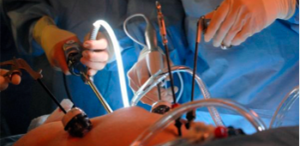
Over the last couple of years, there has been a surge in fad diets, which are diets that have become increasingly popular in a short amount of time. These diets promise quick weight loss results and health improvements with almost zero effort required. However, their unsustainable nature and lack of scientific evidence make them medically unsuitable for most people, especially if they don’t consult a dietitian or doctor first.
This doesn’t mean that all diets that gain widespread popularity are dangerous for our health. There are several dietary plans that help improve the patient’s overall health, not only by helping them obtain their weight loss goals, but by benefiting their quality of life if they suffer from a specific illness, condition, or recovering from surgery. One of these diets is the ketogenic diet, keto for short, which has proven to have helped patients with Alzheimer’s, epilepsy, and cancer.
The question that now arises is if the keto diet is recommendable for patients recovering from weight loss procedures, such as bariatric surgeries. At LIMARP®, our team of doctors oversee your medical history to ensure that you have all the necessary information to seek a postoperative dietary plan that’s best for you.
What’s the Keto Diet?
The keto diet primarily consists in consuming a high-fat, low-carb diet that drives the patient’s body into ketosis, which is a metabolic state that elevates the ketone levels in their blood systems. To achieve this, the dietary macronutrients in this plan are divided into the following percentages:
- 55% to 60% fat
- 30% to 35% protein
- 5% to 10% carbohydrates
The increase of ketones in the body drives it into burning fat for energy. This process is similar to intermittent fasting, another dietary plan that is often recommended as a transition bridge to the keto diet. Even though it’s an effective weight loss method and it’s backed by scientific evidence, the keto diet is not without its downsides. Some side effects to this plan can include constipation, nausea, low energy, and sleep issues. It’s important to contact your doctor or dietitian before trying any dietary plan.
What Can I Eat While on the Keto Diet?
Since the keto diet requires a high fat intake, it’s recommended to plan your daily meals around specific types of food and to consider the other macronutrients in order to effectively follow this dietary plan. Here are some of the foods you can consume while on the keto diet:
- Meat (chicken, turkey, red meat, etc.)
- Fish (tuna, salmon, trout, etc.)
- Eggs
- Butter, cream, and cheese
- Nuts
- Low carb vegetables and avocados
- Healthy oils (extra virgin oil and avocado oil)
It’s also important to know which foods to avoid if you decide to partake in this diet plan, especially if you’re a bariatric patient. All foods that are high in carbohydrates should be limited in your daily meals, for example: grains, fruit, legumes, root vegetables (potatoes, carrots), and alcohol.
Is the Keto Diet Recommended for Bariatric Patients?
The keto diet has proven to be effective in burning fat when it’s carried out properly, but there are limited studies that offer enough insight to determine if this plan is 100% recommendable for bariatric patients. Most of them highlight that the high-fat intake can have more negative impacts than positive, especially if the patient has undergone any type of bariatric surgery. By following the keto diet, bariatric patients risk exceeding the amount of calories stipulated in their postoperative diet plan and they’re also exposed to other complications. For example:
- Constipation
- Inadequate consumption of protein and carbs
- Fatty diarrhea and reduced absorption of nutrients
- Dumping syndrome
The dietary plan recommended for bariatric patients recovering from surgery is gradual while the stomach recovers. It starts with only liquids and as the body becomes more tolerant, the patient can start including pureed foods, then soft foods, until they can finally consume solids. The bariatric patient is usually advised to avoid high-fat foods once they’re recovered from surgery, which is why the keto diet is not usually recommended.
However, some studies have concluded that the keto diet can be suitable for bariatric patients that are in the preoperative process or any other type of non-surgical procedure. A 2020 study stated that a low calorie keto diet is one of the most frequent methods for “the induction of a preoperative weight loss”, but it still concluded that nutritional counseling was needed “to facilitate the adaptation of the eating habits to the new gastro-intestinal physiology”. It’s important to point out that, while a well-rounded diet that’s based on protein is more sustainable for bariatric patients, it’s always better to consult a doctor to discuss the best dietary options.
At LIMARP®, we offer an integrative bariatric program overseen by our team of specialized doctors to help bariatric patients achieve long term results and lead a healthier lifestyle. Based on their medical history, we create personalized programs, which include nutrition plans and physical activity, to ensure that our bariatric patients meet their goals.
Contact Us to Learn More
If you’re a bariatric patient and wish to know if the keto diet is best for you, schedule an appointment with one of our doctors. We can help determine the right treatment for you. Contact us online anytime or give us a call at (619) 373-0229.


